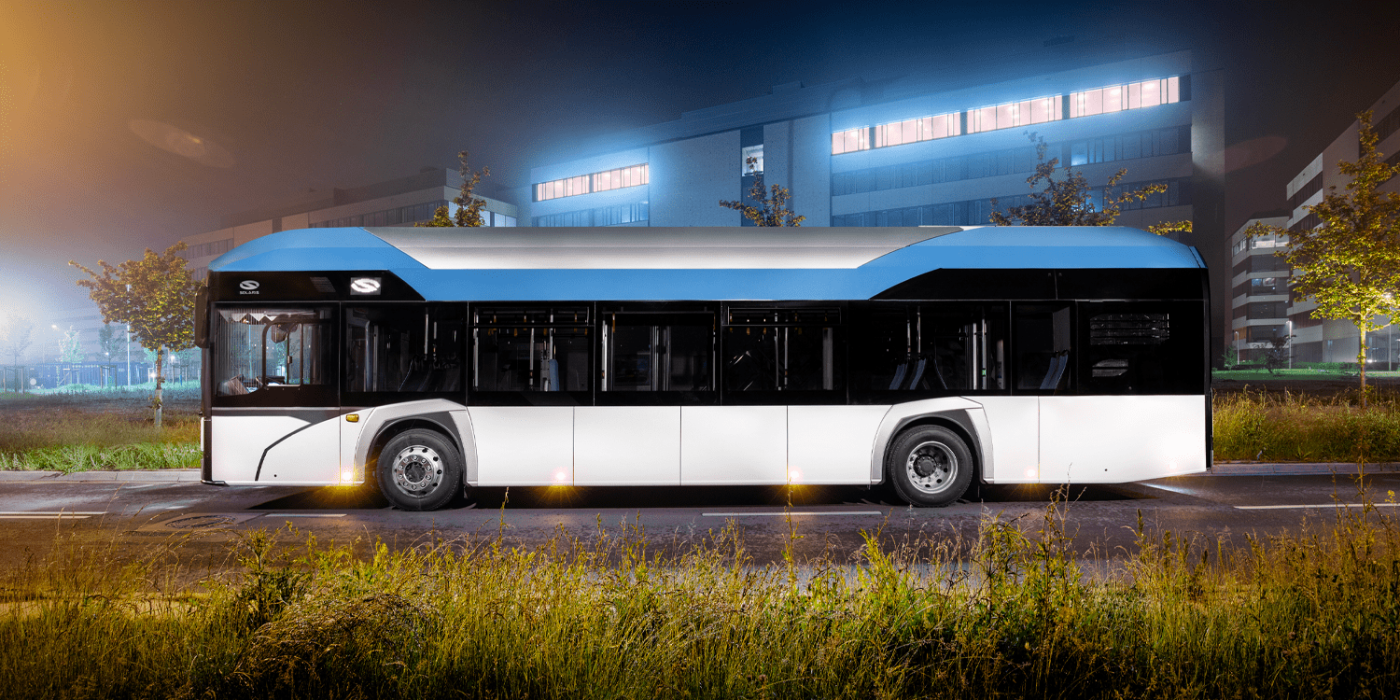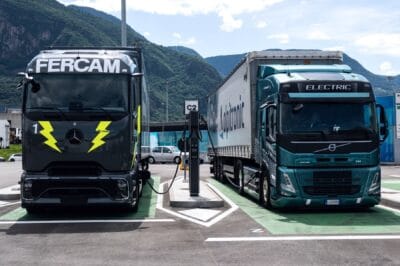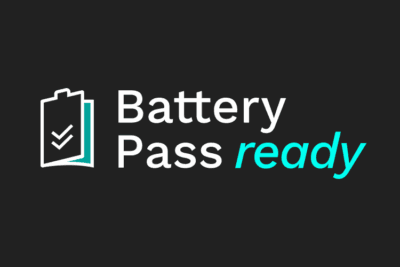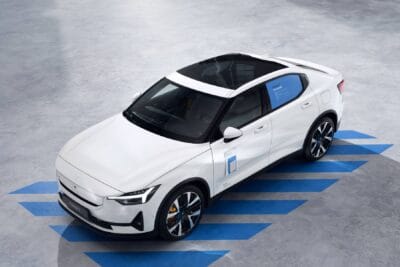European hydrogen consortium to develop standard for heavy fuel cell trucks
A group of 25 companies and organisations from the hydrogen sector have formed a consortium called ‘StasHH’ to develop and test a European standard for fuel cell modules for heavy-duty applications for the first time.
The ‘StasHH’ consortium includes eleven suppliers of fuel cell modules, nine OEMs and five research, testing, engineering and/or scientific institutes. These include Toyota Motor Europe, Volvo Construction Equipment, Alstom, VDL, but also suppliers such as Freudenberg Sealing Technologies or the ElringKlinger subsidiary EKAT.
According to the announcement of the Polish bus manufacturer Solaris, which is part of the consortium, the partners want to standardise dimensions, digital interfaces, test protocols and safety requirements for fuel cell modules. The modules are to be able to be mounted or integrated into heavy-duty vehicles and machines such as forklifts, buses, trucks, trains, ships and construction machinery.
In the first step, a consensus is to be reached between FC suppliers and vehicle manufacturers. Subsequently, the fuel cell module suppliers want to design and develop standardised modules for the individual performance classes. These modules will then be tested at the participating test institutes. Parallel to the development, the consortium wants to advocate that the standard be discussed in the European and international platforms so that it can later be adopted worldwide.
By the way, the name ‘StasHH’ has nothing to do with the German city of Hamburg, but refers to the nomenclature for battery dimensions, which has been established over time as the “AA type” nomenclature, according to the statement. The consortium aims to establish an analogous “HH-type” designation for fuel cell modules.
“StasHH is Europe’s best chance to jump-start the adoption of hydrogen in heavy-duty mobility, a sector that cannot be easily electrified with batteries due to weight, cost or other limitations,” says Federico Zenith, coordinator of the StasHH consortium. “Pooling together multiple markets and enabling competition, mass production and automation, we aim to make a decisive contribution to the phase-out of fossil fuels and to deploy new technology for a better society.”
The consortium will receive €7.5 million in funding from the EU under the Fuel Cells and Hydrogen Joint Undertaking to kick-start the use of fuel cells in the heavy-duty sector. The total budget is 15.2 million euros, according to the announcement.
The StasHH consortium consists of 25 companies and organisations: Alstom Transport SA, AVL List GmbH, Ballard Power Systems Europe A/S, Centro per gli Studi di Tecnica Navale CETENA S.p.A., Commissariat à l’Energie Atomique et aux Energies Alternatives, DAMEN, ElringKlinger Fuelcell Systems Austria GmbH, FCP Fuel Cell Powertrain GmbH, FEV Europe GmbH (supported by FEV Software and Testing Solutions GmbH), Freudenberg FST GmbH, Future Proof Shipping BV, Hydrogenics GmbH (Hydrogenics GmbH is now part of Cummins), Intelligent Energy Limited, Nedstack Fuel Cell Technology BV, Netherlands Organisation for Applied Scientific Research (TNO), Nuvera Fuel Cells Europe, Proton Motor Fuel Cell GmbH, SINTEF AS, Solaris Bus & Coach sp. z o.o., Symbio SAS, Toyota Motor Europe NV/SA, VDL Enabling Transport Solutions BV, VDL Energy Systems, Volvo Construction Equipment (supported by Volvo Technology and Volvo Penta), WaterstofNet vzw.





0 Comments